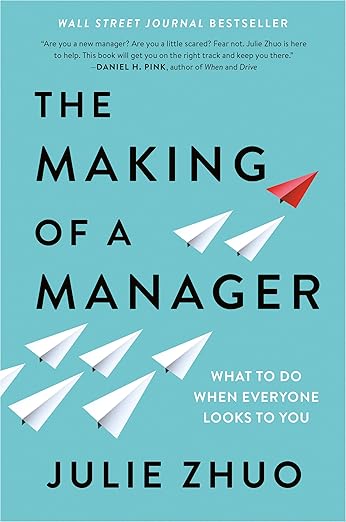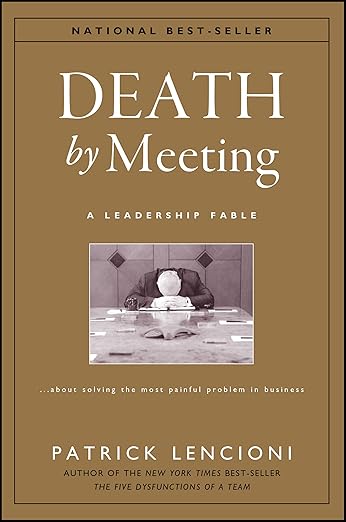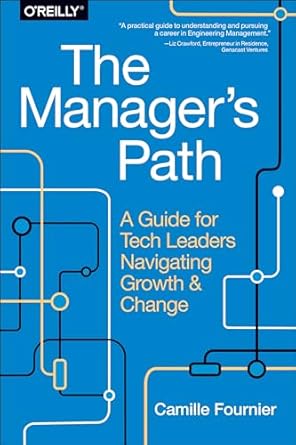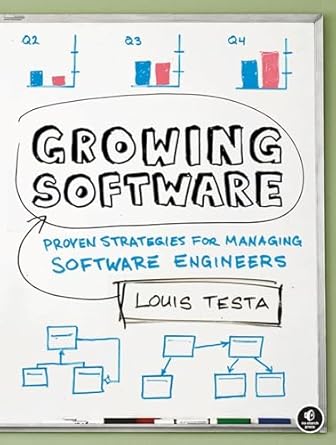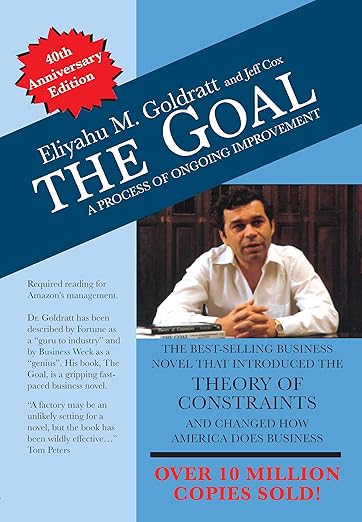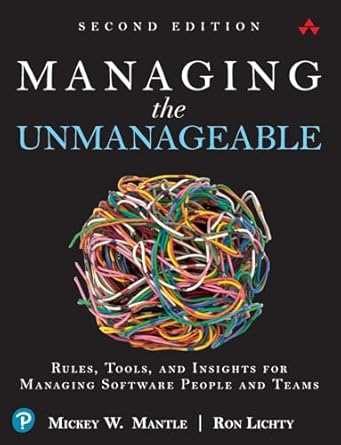Your support helps keep the site running! We recommend books and products we believe in. Some of the links on this page are affiliate links, which means we may earn a commission if you purchase through these links. Read our affiliate disclosure.
Whether you’re a budding manager or looking to sharpen your skills, the right book can be a game-changer. It can provide you with the strategies, perspectives, and inspiration needed to tackle challenges head-on and lead with confidence.
Mine for example, is the first one you will see on the list (The Making of a Manager by Julie Zhuo)
Let’s start…
Management Books
The Making of a Manager by Julie Zhuo
This is one of my favorite books on management. Julie Zhuo, with her journey from a new manager at Facebook to a top executive, unpacks the essence of management in “The Making of a Manager”. It’s a must-read if you’re figuring out what it truly means to lead. Zhuo demystifies management with real-life anecdotes, making it feel like you’re learning from a friend who’s been in the trenches.
Key takeaway: Management is about making others better as a result of your presence.
Death by Meeting by Patrick M. Lencioni
Patrick M. Lencioni’s “Death by Meeting” challenges the dread surrounding meetings and proposes a method to make them engaging and productive. It’s a storyline that unfolds the woes of boring meetings and introduces techniques to revitalize them.
Key takeaway: Transform meetings from tiresome obligations into engaging, outcome-driven gatherings.
Radical Focus by Christina Wodtke
In “Radical Focus”, Christina Wodtke introduces the Objective and Key Results (OKRs) framework through a compelling story about a startup. It’s a practical guide that teaches you to achieve your goals with unwavering focus and rigorous execution.
Key takeaway: Mastering OKRs can drive growth and innovation in any team.
The Manager’s Path by Camille Fournier
Camille Fournier’s book is a beacon for every tech leader exploring the complexities of a managerial role. “The Manager’s Path” offers insights into individual contributions to CTO. It’s both a roadmap and a companion for your leadership journey in tech.
Key takeaway: Effective management practices can amplify your impact in the tech industry.
High Output Management by Andrew S. Grove
“High Output Management” by Andrew S. Grove is a classic that resonates with managers across industries. Grove, the former CEO of Intel, shares his wisdom on building and running a successful team. His approach to management as a practice of outputs rather than inputs is revolutionary.
Key takeaway: Boost productivity by focusing on output metrics.
Managing Humans by Michael Lopp
Michael Lopp, aka Rands, brings humor and insight into the daily life of a manager in tech with “Managing Humans”. Lopp shares stories from his experience, offering valuable lessons on exploring the human aspect of software development.
Key takeaway: Understanding people is the key to effective tech management.
Behind Closed Doors by Johanna Rothman and Esther Derby
“Behind Closed Doors” focuses on the practices that successful managers employ. Rothman and Derby share strategies that help managers enhance their team’s performance and maintain a healthy work environment.
Key takeaway: Great management lies in the subtle art of empowering teams.
Software Engineering Management
Growing Software by Louis Testa
Imagine you’re nurturing a plant. You provide water, sunlight, and soil. Similarly, Louis Testa’s “Growing Software” approaches software engineering management as a nurturing process. This book teaches you how important it is to provide the right environment for your team to flourish.
Key insights include strategies on resource allocation and how to foster innovation within your teams.
An Elegant Puzzle – Systems of Engineering Management by Will Larson
Will Larson’s “An Elegant Puzzle” dives deep into the complex world of engineering management. It’s like solving a Rubik’s cube, where every move impacts the outcome. Larson offers frameworks and models to help tackle challenges like scaling teams, designing compensation frameworks, and setting goals. It’s a must-read if you’ve ever been puzzled by the intricacies of managing engineering teams.
97 Things Every Engineering Manager Should Know by Camille Fournier
Camille Fournier’s compilation, “97 Things Every Engineering Manager Should Know,” is like the Swiss army knife of management. It provides concise, actionable advice on a wide range of topics. From managing technical debt to fostering a culture of learning, Fournier and contributors share valuable lessons from their own experiences. This book is a treasure trove of wisdom for new and seasoned managers.
Principles of Software Engineering Management by Tom Glib
Tom Glib’s “Principles of Software Engineering Management” is like returning to the basics, but with a twist. It combines traditional management principles with an agile mindset. Glib argues for a flexible approach to project management, emphasizing the importance of team collaboration and rapid response to change. If you want to blend classic management styles with modern agile practices, this book offers the blueprint.
The Goal by Eliyahu M. Goldratt and Jeff Cox
Although not exclusively about software engineering, “The Goal” by Eliyahu M. Goldratt and Jeff Cox applies to almost any managerial position. Through a gripping narrative, this book introduces the Theory of Constraints, a method to identify and overcome the bottlenecks that hinder progress. It’s a powerful read if you’re interested in maximizing throughput and efficiency, not just in software but in any project management scenario.
Managing the Unmanageable by Mickey W. Mantle and Ron Lichty
Finally, “Managing the Unmanageable” by Mickey W. Mantle and Ron Lichty feels like having a heart-to-heart with a seasoned mentor. This book acknowledges that managing software engineers, with their distinct traits and work styles, can sometimes feel like herding cats. But, it offers real-world advice on everything from hiring to motivating to retaining these uniquely skilled individuals. If you’ve ever felt out of depth trying to manage a team of brilliant but challenging engineers, this book is for you.
Managing People
The following books provide invaluable insights into the human side of management.
Peopleware by Tom DeMarco and Tim Lister
Imagine you’re leading a team of brilliant engineers. Your goal isn’t just to keep the projects on track and ensure your team remains engaged, motivated, and, above all, happy. Peopleware: Productive Projects and Teams by Tom DeMarco and Tim Lister is a treasure trove of knowledge. This book examines what makes teams tick and how creating a supportive environment can lead to unprecedented success.
Key takeaways from Peopleware:
- The importance of creating a jargon-free, comfortable work environment that enhances productivity.
- Strategies for dealing with the inevitable conflicts that arise within teams.
- Techniques for fostering a culture of creativity and innovation among your team members.
How to Win Friends and Influence People by Dale Carnegie
Next, let’s take a step back to one of the classics, How to Win Friends and Influence People by Dale Carnegie. Don’t be fooled by its publication date; the principles packed within this book are timeless. Whether you’re convincing stakeholders to buy into your vision, pitching your startup, or simply trying to improve team dynamics, Carnegie’s insights can help you navigate these interactions with ease.
What We Like Less:
- It’s an old book with anecdotes and stories sprinkled throughout. You may also find it difficult to relate to some of the instances of great individuals in this book.
Why You Are Going to Like it:
- Suppose you want an older book to teach you how to influence people. In that case, Carnegie’s book may help you understand human behavior and talk to your audience in a way that will connect with them across several media.

